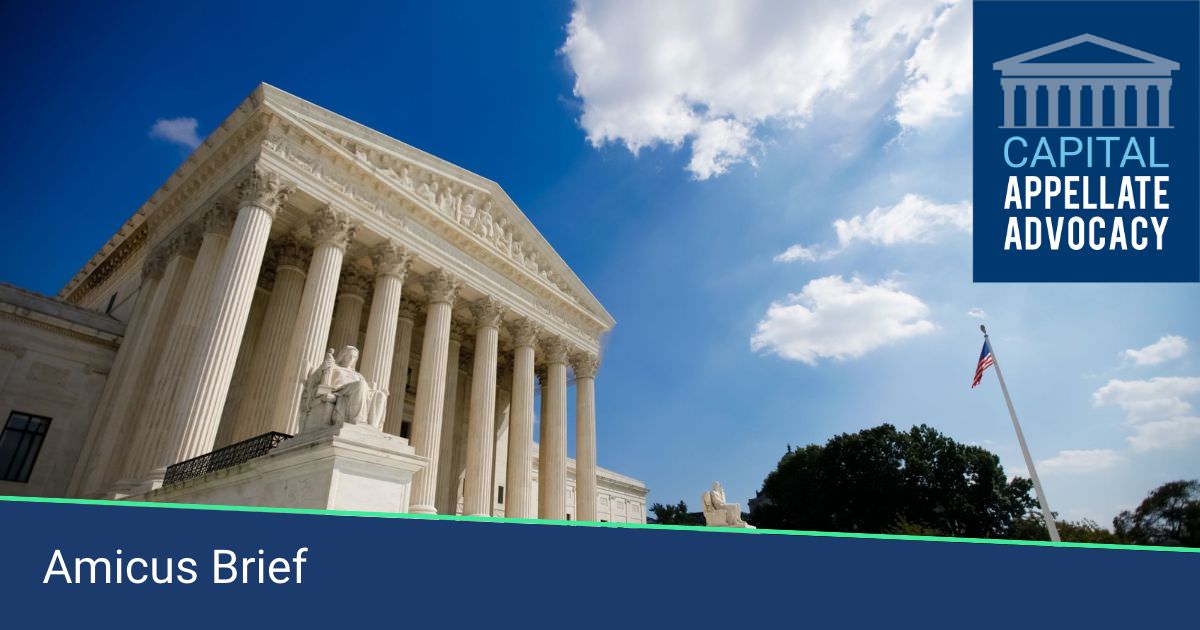The pending certiorari petition in Hain Celestial Group, Inc. & Whole Foods Market, Inc. v. Palmquist, No. 24-724, presents an important unresolved question fundamental to ALF’s civil justice mission. ALF has filed an amicus brief urging the Supreme Court to grant review.
Case Background
The Fifth Circuit’s holding that the district court’s final judgment in favor of a completely diverse defendant (baby food manufacturer Hain Celestial) must be vacated—and that the plaintiffs’ product liability suit must be remanded in its entirety for de novo adjudication in state court—not only is wrong as a matter of law, but also enables and encourages post-judgment vertical (i.e., state court vs. federal court) forum shopping.
Under the Fifth Circuit’s ruling, plaintiffs now have more reason than ever to include a nondiverse defendant (here, Texas-based Whole Foods) at the outset of their state-court suit: They now know that if the suit is removed to federal court on diversity grounds, and the district court, after dismissing the nondiverse defendant as improperly joined, enters final judgment for the diverse defendant (here, Hain), the court of appeals might reverse the improper-joinder ruling and reward them with a total do-over in a more hospitable state trial court.
This state-court mulligan—a second chance to impose liability on Hain, which already has endured the costs and burdens of district court litigation and won on the merits—is especially wasteful, troubling, and unfair where, as here, the district court, after hearing at trial the ambivalent testimony of the plaintiffs’ experts, has concluded that the critical element of general causation is “simply not supported by the science.”
There is no dispute that the plaintiffs’ product liability claims were adjudicated fully and fairly by the district court. In contrast, the post-judgment vertical forum shopping that the Fifth Circuit has authorized—tantamount to double jeopardy—is fundamentally unfair to Hain, which must relitigate in state court (or be forced to settle) a liability suit that it already has won on the merits in federal court. Absent the Supreme Court’s intercession, this unfair do-over of the district court’s merits determination—which the Fifth Circuit did not disturb—also would be a tremendous waste of judicial resources for both federal and state courts, whose dockets are chronically clogged.
The Fifth Circuit’s precedential ruling is particularly troubling in product liability litigation where scientific and/or medical testimony is involved. As the record reflects, the district court, in granting judgment as a matter of law to Hain, carefully considered the plaintiffs’ expert and other trial testimony and concluded that it failed to address, much less demonstrate, the essential element of general causation. Although the court of appeals expressly declined to address the merits of the district court’s scientific conclusion, it has cleared the way for a state trial court to second guess the district court on the adequacy of the causation testimony.
ALF’s Amicus Brief
ALF’s brief explains that when plaintiff-side forum shopping places a defendant at an unfair disadvantage, it offends due process and undermines the nation’s civil justice system. This is the case in the Hain Celestial litigation.
The fact that the litigation was removed to, and fully and fairly adjudicated by, a Texas federal district court—which granted judgment as a matter of law to Hain after dismissing Texas-based Whole Foods as improperly joined and hearing the plaintiffs’ case against Hain at trial—illustrates the unfairness of the post-judgment vertical forum shopping that the Fifth Circuit’s opinion has enabled. As a practical matter, the court of appeals not only has authorized, but also encouraged, unfair forum shopping. ALF’s amicus brief argues that the Court needs to grant certiorari to ensure that this post-judgment forum shopping—and enormous waste of judicial resources— does not recur.

